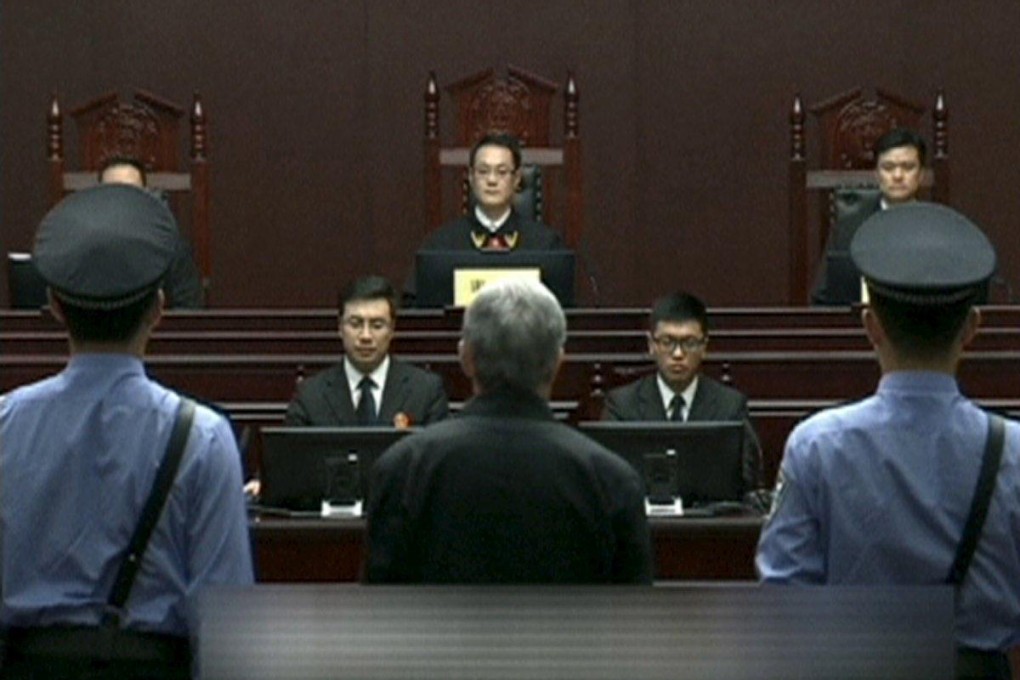New | Secrecy in trial of China's disgraced security tsar Zhou Yongkang raises question: was deal made?

The lighter-than-expected sentence handed to former security tsar Zhou Yongkang after a closed-door trial was a well-calculated political decision by Beijing that likely followed "Chinese-style plea bargains" under the table, observers say.
Two years into his graft probe, Zhou's fate was finally decided on Thursday when a court in Tianjin jailed him for life on charges of taking 731,000 yuan (HK$920,000) in bribes, leaking six classified documents to a mainland "qigong master", and abusing his power.
Professor Huang Jing, from the Lee Kuan Yew School of Public Policy in Singapore, said Beijing wanted to keep Zhou alive as their "tainted witness" to deter corrupt officials and "political opponents" from subverting Xi Jinping's sweeping anti-graft campaign.
Zhou is a walking encyclopedia [of other top officials]. If he was executed, what he knows would be taken to the grave.
"Zhou is a walking encyclopedia [of other top officials]," Huang said. "If he was executed, what he knows would be taken to the grave."
Nor did Beijing want Zhou to walk away from his widely-known crimes, said Steve Tsang, dean of the University of Nottingham School of Contemporary Chinese Studies.
"A life sentence is therefore exactly what one should expect," Tsang said.
"The real issue is not what he was guilty of, but what the Communist Party leadership thought he should be charged with and convicted of in order to fit the pre-determined sentence."
Xiaoyu Pu, a Chinese politics expert at the University of Nevada, said plea bargains might have occurred, out of sight, along the lines of "Zhou agrees to plead guilty and confess publicly in return for more severe charges being dropped," he said.
